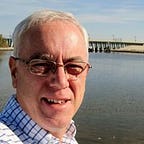Political Engineers
There’s political science, political economy, and even “the art of politics.” However, a similar pairing of “politics” with the vocation of “engineering” does not exist. Politics and engineering might as well exist in separate parallel universes. Except, this has not always been the case.
In fact, the origin of the engineering profession can be traced to a time and place, 19th century France, in which engineers were closely associated with government and politics. That history lives on today in the special role that professional engineers claim for themselves in service to the public.
Elections held in 2017 and 2018 represent a high-water mark for political involvement by members of the STEM (Science Technology Engineering and Math) community in Western countries. Frustrated by increasingly anti-science attitudes in government, members of the STEM professions launched themselves into politics as candidates for elective office.
Even with this boost in interest, only 19 of the 541 members of the 116th congress in the US had previously worked in a STEM field. Of these, 11 were engineers, for about 2 percent of the total. By comparison, 40 percent of the US congress have law degrees. Participation by engineers in national politics is higher but only slightly in Germany (3 percent) and France (2.6 percent).
At the end of the 19th century, engineers had a much higher political profile in the French government. For example, engineers held between 5 and 6 percent of the seats in Parliament during the period 1885 to 1893. but more significantly, a high proportion of the influential Council of Ministers were engineers. In the government elected in the fall of 1885, 3 out of 11 ministerial positions — over 25 percent — were held by engineers, including the office of president held by Charles Freycinet.
There are two reasons that explain what appears today to be an unusual level of participation by engineers in politics during Freycinet’s time. The first has to do with challenges facing the French government in the 1880s. The second has to do with long history of government reliance on engineering expertise in France dating back to the earliest days of the engineering profession in the 18th century.
France’s defeat in the Franco-Prussian War, in 1870, shocked the country with the realization that Germany had displaced France as the scientific and industrial powerhouse on the European continent. The period of rebuilding that followed the war created a demand for technical competence and managerial skill at the highest levels of government. This provided the opportunity for men like Freycinet, who began his career as a mechanical engineer working for the railways, to succeed in politics.
But, Freycinet’s transition from to government from the railways was not as drastic as would be the case today. Because, Freycinet had been groomed for public service from his very first day as an engineering student at the elite Ecole Polytechnique. After graduation in 1848, Freycinet joined state-supported engineering corps as a mining engineer. Freycinet’s work for the railways was done while on on loan from the national engineering corps, and it was followed by assignments to study industrial development and urban sanitation in England, Belgium, and Germany.
The practice of engineering today owes much to the history of engineering in France during the 18th century, including the close association between government and engineers through the national corps of engineers. The curriculum of the Ecole Polytechnique, which provided students with a broad grounding in math and science, was widely copied by “polytechnic” engineering schools established in the US and elsewhere during the 1800s.
Engineers, in the fulfillment of their professional duties, shall: 1) Hold paramount the safety, health, and welfare of the public… (NSPE Code of Ethics for Engineers)
The French engineering legacy includes the expectation that engineers carry a special duty to serve the public. This was part of the indoctrination of young engineers from the time they entered the Ecole Polytechnique. And, it continues today in the engineering code of ethics adopted as the basis for a career as a professional engineer in the US and other countries.
RE: Engineering publishes occasional notes and comment on what it means to be an engineer in a world created by science and technology. To view other issues of the newsletter and/or sign up to receive future issues via email, go here.
